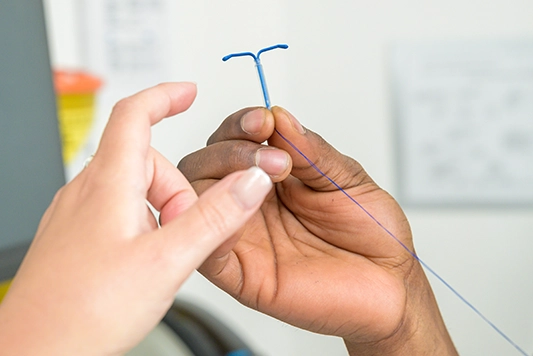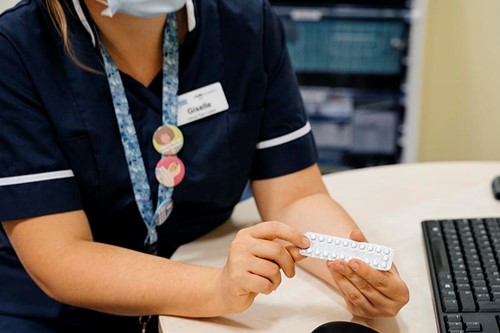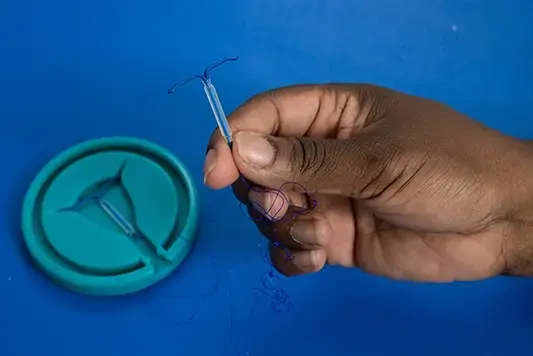Contraception myths and facts

Contraception myths vs facts
We know that it can sometimes be difficult to find accurate, quality information about contraception. With a range of contraceptive methods available and misinformation about sexual and reproductive healthcare on the rise, it can be hard to separate the myths from the facts.
On this page, we debunk some common myths by sharing key facts about contraception.
Using contraception does not affect your future fertility. Once you stop using contraception, your fertility should very quickly return to its normal levels. There is an exception to this rule in the Depo injection – which can delay fertility for up to a year after stopping.
There is no medical need for a break from contraception. It is safe to continuously use hormonal contraception without any breaks or interruptions.
Changes in your medical history may mean that you need to change methods, but this will always be reviewed by your healthcare provider during your contraception appointment.
The withdrawal method (pulling the penis out of the vagina before ejaculation) is not a reliable form of contraception. It is difficult to control ejaculation and pre-ejaculate fluid may contain sperm, which can lead to pregnancy.
It is not dangerous to take combined methods of contraception continuously, without taking a break. If you would prefer not to have a break at all, you can continue to take the next pack of pills when you finish your current pack, or immediately replace your patch or ring. Taking these methods in this way can also help if you usually experience unpleasant side effects during your break.
Whilst it isn’t medically necessary to have a break, taking these methods continuously does mean that you have less control over when you have a bleed (you may occasionally still have a bleed, but won’t necessarily know when to expect this).
If you’d prefer to have more control over when you have a bleed, there are other ways of taking these methods available – for example, you could use the pill, patch or ring continuously for 9 weeks (using 3 packets of 21 pills, 3 rings or 9 patches) and then have a break for 4 or 7 days (this is called tricycling).
Emergency contraception does not cause abortion. Emergency contraception prevents a pregnancy, whilst the abortion pill ends an existing pregnancy.
Emergency contraception works by delaying or preventing ovulation, fertilization, or implantation of an egg. It is not effective once a pregnancy has already occurred. The most effective form of emergency contraception is a non-hormonal coil which can be used up to 5 days after unprotected sex!
You can read more about the difference between emergency contraception and abortion here: What is the difference between the ‘morning after pill’ and the abortion pill?
It is possible to fall pregnant while breastfeeding.
There are three criteria that you must fulfil if you don’t want to get pregnant whilst breastfeeding. The first is that your baby must be less than 6 months, the second is that your periods have not resumed, and the last is that the baby is exclusively breastfeeding (feeding less than every 4 hours in the day and 6 hours at night, with no supplements or formula).
All three of these criteria being fulfilled can stop ovulation and therefore reduce the chance of pregnancy, but if there any breaks in breastfeeding or you begin to ween, this is no longer the case.
Local anaesthetic can greatly reduce the discomfort felt during a coil insertion. Check with your provider before your appointment if they offer anaesthetic for the procedure. If they don’t and it is something you would like – it may be worth reaching out to other providers in your local area. Here at MSI, we offer local anaesthetic for all our coil fittings.
To read more about coil fitting and the anaesthetic options offered by MSI UK, read our blog on how to prepare for a contraception appointment.
Contraception is not only for avoiding an unwanted pregnancy. There are many other potential benefits that the various options of contraception can offer like helping with heavy menstrual bleeding, supporting with menopause symptoms, and improving skin. Speak with your provider about what the different methods of contraception could help you with!
You can start most contraceptive methods at any time in your cycle. This means most people don’t have to delay starting a method until their next cycle!
Although fertility does decrease with age, this does not mean that a pregnancy could not occur. You have the potential to conceive all the way up to menopause.
Some contraceptive methods may stop or change your periods, but this does not cause any harm.
Learn more about contraception
Visit the pages below to learn more about contraception at MSI UK and find a useful comparison tool to help you find a method of contraception that is right for you.

Post-abortion contraception
Learn more about contraception as part of NHS-funded abortion care.

Standalone contraception at MSI UK
The areas we offer contraception for people who have not accessed abortion services.

Which method is right for me?
Find a contraception comparison tool that can help you find the right method for you.




